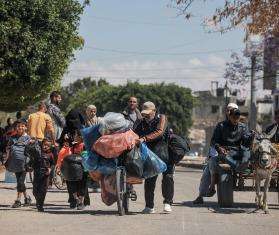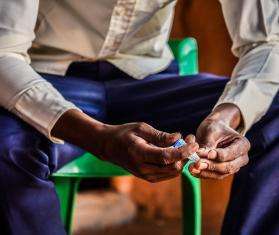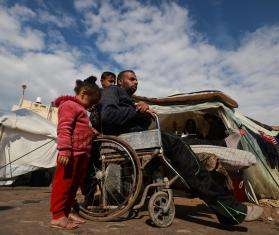Gloria was pregnant, expecting her third child, when she and her family were forced to flee from Burundi. They spent four months stranded at the Tanzanian border before making it to Nduta refugee camp. "On the way here, the road was very rough, and that affected me," says Gloria. "I was rushed to the hospital when they discovered I was pregnant." She received access to emergency obstetric care in Nduta, where Doctors Without Borders/Médecins Sans Frontières (MSF) is the main health care provider.
Women and adolescent girls are among those forced to flee violence and persecution, and many of them are pregnant, or may become pregnant, along the journey.
Lack of access to routine care puts pregnant women and their babies at risk, and lack of emergency care can be life-threatening. Fleeing when pregnant can increase the risk of miscarriage or pre-term delivery. Problems that could be managed—for example, by controlling anemia or vaccinating for tetanus—can escalate to grave proportions. Evidence shows that a mother’s death also affects the survival of her children.
In Nduta, Tanzania, as in other places, the health network is as important as the individual sites of care: mobile clinics, health posts, MSF’s maternity hospital, and the external Kibondo hospital are all linked to ensure that care is available as widely as possible for pregnant women and girls.
To mark International Women’s Day on March 8, MSF is featuring stories of displaced women and girls from places including Syria, Myanmar, Burundi, and Nigeria.
Learn more about displaced women's health needs at:
Because I'm a Woman




